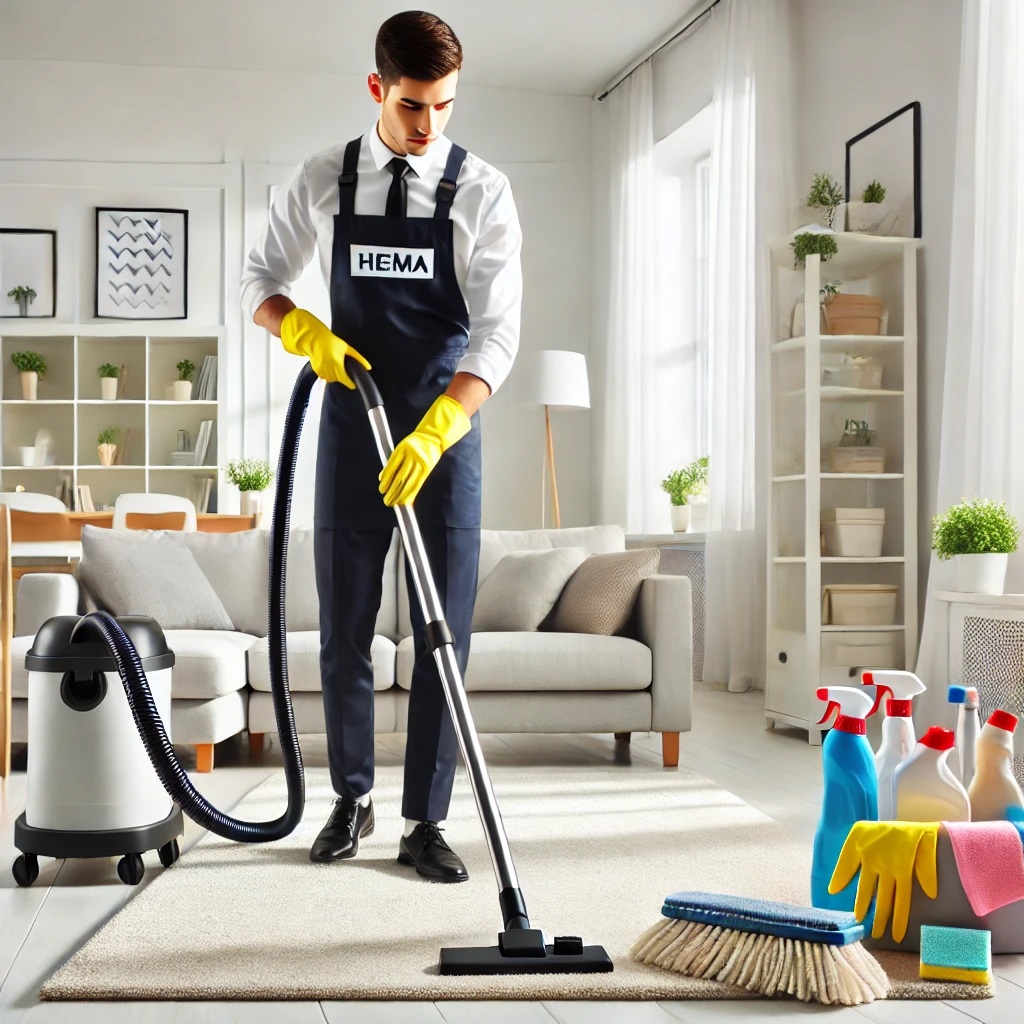
Introduction
Indoor air quality (IAQ) plays a vital role in overall health. Poor air quality can lead to respiratory issues, allergies, and long-term health problems. Pollutants such as dust mites, pet dander, mold, and volatile organic compounds (VOCs) accumulate over time, particularly in carpets, upholstery, and hidden corners. Deep cleaning services offer a solution by thoroughly removing these contaminants, creating a healthier indoor environment.
How Deep Cleaning Improves Indoor Air Quality
1. Eliminating Allergens
Deep cleaning targets allergens like dust mites, pet dander, and pollen trapped in carpets, furniture, and curtains. High-efficiency vacuums, steam cleaning, and other advanced tools extract these irritants, reducing the likelihood of allergic reactions and asthma attacks.
2. Mold Prevention and Removal
Mold thrives in damp, hard-to-reach areas such as under sinks, behind appliances, and in air ducts. Professional deep cleaners use specialized treatments to eliminate mold and its spores, preventing it from circulating in the air and causing respiratory issues.
3. Reduction of VOCs
Volatile organic compounds, emitted by cleaning products, paint, and furniture, can accumulate indoors. Deep cleaning services utilize eco-friendly, low-VOC products, minimizing harmful chemical exposure and improving air quality.
4. Cleaner Air Ducts
Air ducts are often overlooked but are major culprits in circulating dust, debris, and allergens. Professional duct cleaning removes buildup, enhancing HVAC efficiency and ensuring cleaner air distribution throughout your home.
Benefits of Deep Cleaning Services
1. Improved Health
Cleaner indoor air reduces the risk of respiratory issues, allergies, and long-term health complications such as chronic obstructive pulmonary disease (COPD).
2. Enhanced Comfort
Dust-free, fresh-smelling spaces create a more inviting and relaxing environment, improving overall quality of life.
3. Long-Term Cost Savings
Preventative cleaning extends the life of carpets, furniture, and HVAC systems, saving money on replacements and energy bills.
4. Compliance with Health Standards
For businesses, regular deep cleaning ensures compliance with health regulations, safeguarding employees’ and customers’ health.
DIY Cleaning vs. Professional Deep Cleaning
| Feature | DIY Cleaning | Professional Deep Cleaning |
|---|---|---|
| Scope | Surface-level dirt removal | Deep, thorough cleaning |
| Tools and Techniques | Basic cleaning tools | Advanced equipment and expertise |
| Impact on IAQ | Minimal | Significant improvement |
| Time Investment | High | Handled by professionals |
| Cost | Lower upfront | Greater value for long-term benefits |
While DIY cleaning is cost-effective for daily maintenance, it cannot match the depth or results of professional services. Investing in deep cleaning ensures a healthier home and better air quality.
Tips for Maintaining Good Indoor Air Quality
1. Regular Cleaning
Vacuum carpets, dust furniture, and wash bedding frequently to minimize allergens.
2. Ventilation
Keep windows open when possible to allow fresh air circulation and reduce indoor pollutants.
3. Use Air Purifiers
Install air purifiers with HEPA filters to trap airborne particles.
4. Opt for Eco-Friendly Products
Avoid harsh chemicals and use non-toxic cleaning products to reduce VOCs.
When Should You Opt for Deep Cleaning?
- Seasonal Changes: Especially during spring and fall when allergens peak.
- Post-Renovation: Construction dust and debris can severely affect IAQ.
- Health Issues: Persistent allergies, asthma, or unexplained respiratory issues indicate the need for deep cleaning.
- Move-Ins/Outs: Ensuring the space is free from the previous occupant’s residues.
Conclusion
Deep cleaning services significantly improve indoor air quality by removing hidden pollutants, allergens, and harmful chemicals. Regular deep cleaning complements daily maintenance, providing a healthier and more comfortable living environment. Whether for your home or office, investing in professional services enhances health, prolongs the lifespan of your belongings, and ensures better air for everyone. Follow us on Google Maps here: https://maps.app.goo.gl/LUXaqpwQsiVf2Ldq9
FAQs
1. How often should I schedule deep cleaning services?
It’s recommended to opt for professional deep cleaning every 6-12 months, depending on your household size, pets, and environmental factors.
2. Can deep cleaning remove odors?
Yes, deep cleaning eliminates the root causes of odors, such as mold, pet dander, and trapped food particles, leaving your home fresh and odor-free.
3. Is deep cleaning safe for children and pets?
Professional services often use eco-friendly, non-toxic products safe for both children and pets. Always confirm with the provider beforehand.
4. Will deep cleaning damage my furniture or carpets?
No, professional cleaners are trained to handle different materials delicately, ensuring no damage while delivering effective results.
5. Can deep cleaning help with asthma symptoms?
Absolutely. By removing allergens, dust, and mold, deep cleaning creates a healthier environment, reducing asthma triggers.
